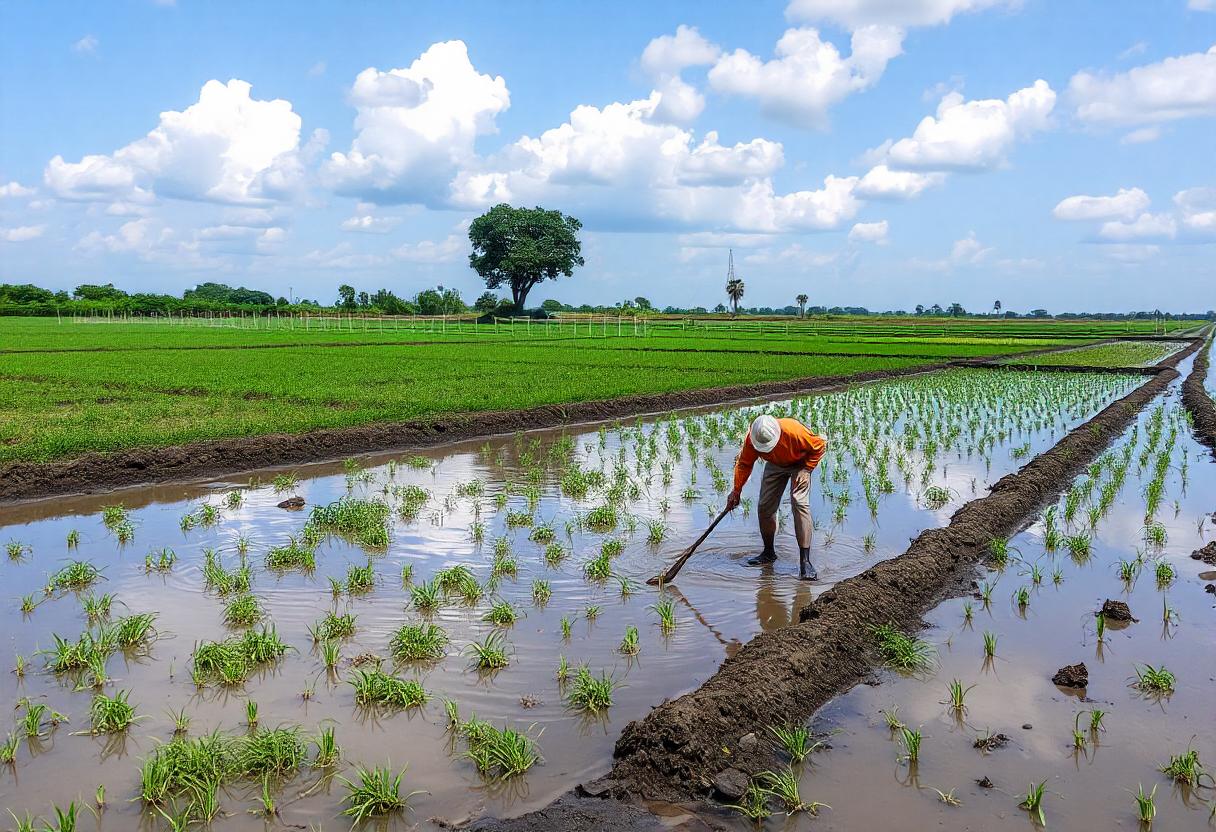
Water is a crucial resource in agriculture, playing a central role in crop growth, livestock management, and overall farm productivity. Effective water management is essential for maximizing yields, ensuring sustainability, and addressing the challenges of water scarcity. Here’s a detailed look at how water is integrated into agricultural practices and innovations aimed at optimizing its use.
Irrigation Systems
Irrigation systems are vital for providing crops with the necessary water to thrive, especially in areas where rainfall is insufficient or inconsistent. Various types of irrigation systems include:
- Drip Irrigation: This method delivers water directly to the plant’s root zone through a network of tubes and emitters. It minimizes water wastage and improves efficiency by targeting specific areas.
- Sprinkler Irrigation: Sprinklers distribute water over a large area, mimicking natural rainfall. This method is suitable for various crops and can be adjusted to cover different field sizes.
- Surface Irrigation: Water is applied directly to the surface of the field, either by flooding or through furrows and basins. This traditional method is less efficient but can be used in areas with ample water supply.
Smart Irrigation Technologies
Smart irrigation technologies utilize data and automation to optimize water use:
- Soil Moisture Sensors: These sensors measure soil moisture levels and provide real-time data to adjust irrigation schedules. By applying water only when necessary, they reduce overwatering and conserve resources.
- Weather-Based Controllers: These systems use weather forecasts to adjust irrigation based on anticipated rainfall and temperature. They help prevent irrigation during rainy periods and ensure crops receive the right amount of water.
- Automated Irrigation Systems: Automated systems integrate sensors, controllers, and valves to manage irrigation schedules and water distribution without manual intervention. This technology enhances efficiency and reduces labor requirements.
Water Conservation Practices
Conserving water is essential for sustainable agriculture, especially in water-scarce regions. Some key practices include:
- Rainwater Harvesting: Collecting and storing rainwater for later use helps supplement irrigation needs and reduces dependency on external water sources.
- Water-Efficient Crop Varieties: Selecting crop varieties that are more tolerant to drought and require less water can improve resilience and reduce water usage.
- Soil Conservation Techniques: Practices such as mulching, cover cropping, and conservation tillage improve soil moisture retention and reduce evaporation.
Precision Agriculture and Water Management
Precision agriculture uses technology to enhance water management through:
- Geographic Information Systems (GIS): GIS tools analyze spatial data to create detailed maps of soil types, moisture levels, and crop needs. This information helps in tailoring irrigation practices to specific areas within a field.
- Remote Sensing: Remote sensing technologies, such as drones and satellite imagery, provide insights into field conditions and water requirements. They help in monitoring crop health and identifying areas that need more or less water.
Water Recycling and Reuse
Water recycling and reuse strategies involve treating and repurposing water to reduce waste and enhance sustainability:
- Recycled Water for Irrigation: Treating and using wastewater for irrigation can supplement water supply and reduce the burden on freshwater resources. Proper treatment ensures that recycled water is safe for agricultural use.
- Closed-Loop Systems: In some agricultural systems, such as aquaponics, water is continuously recycled within the system. Fish waste provides nutrients for plants, and plants help filter and clean the water for reuse.
Impact of Climate Change on Water Resources
Climate change affects water availability and distribution, impacting agriculture in several ways:
- Altered Rainfall Patterns: Changes in precipitation patterns can lead to droughts or excessive rainfall, affecting crop yields and irrigation needs.
- Increased Evaporation Rates: Higher temperatures increase evaporation rates, reducing soil moisture and increasing irrigation demands.
- Melting Glaciers and Snowpack: The melting of glaciers and snowpack can impact water supplies for irrigation in regions dependent on snowmelt.
Sustainable Water Management Strategies
Sustainable water management strategies focus on balancing water use with conservation efforts:
- Integrated Water Resource Management (IWRM): IWRM approaches coordinate the management of water, land, and related resources to maximize economic and social benefits while ensuring environmental sustainability.
- Watershed Management: Managing entire watersheds helps in conserving water resources, improving water quality, and reducing the risk of flooding.